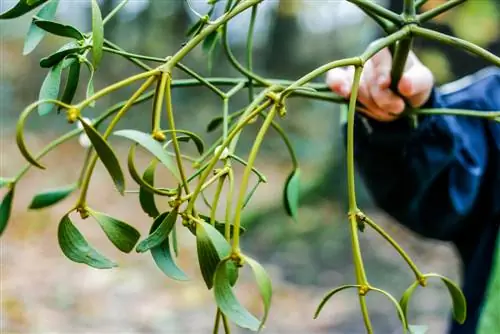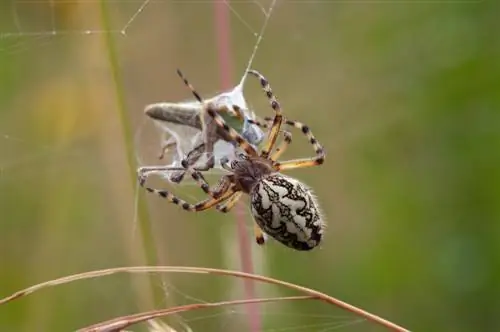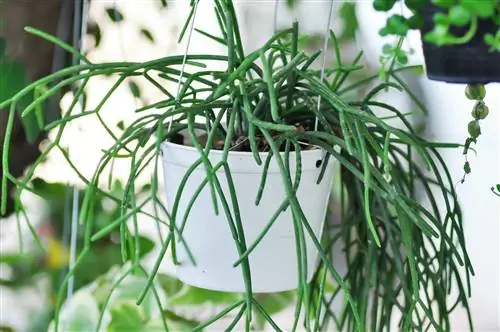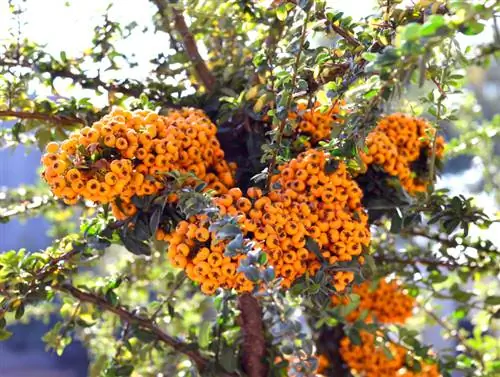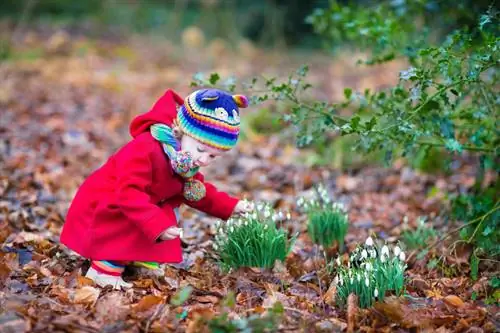- Author admin leonars@hobbygardeners.com.
- Public 2023-12-16 16:46.
- Last modified 2025-01-23 11:22.
Many comic readers know mistletoe as the magical plant of the Druids, and in some countries it is considered a symbol of love. In fact, it is a so-called semi-parasite that can damage the host plant, but is also poisonous.
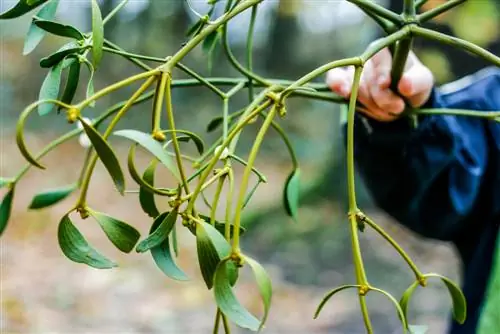
Are mistletoe poisonous to people and animals?
Mistletoe is slightly toxic to humans and animals, especially the leaves and stems. Their toxicity depends on the host tree and the season. Symptoms of poisoning can include gastrointestinal complaints and breathing problems. Mistletoe berries are not poisonous, but can get stuck in the throat.
Is mistletoe poisonous to animals?
The leaves and stems of mistletoe are slightly toxic to both humans and animals, while the berries are considered non-toxic. We strongly advise against eating the sticky berries as they easily get stuck in the throat. This can be very unpleasant. Some birds eat these berries and thus ensure the spread and reproduction of mistletoe.
The actual toxicity of mistletoe varies depending on the host tree and the season. The main symptoms of mistletoe poisoning are complaints in the gastrointestinal area, such as increased salivation, nausea and vomiting. But there can also be difficulty breathing.
Mistletoe in medicine
Medicine has also discovered mistletoe, which is easy to propagate. It is used to support accompanying cancer therapy and to treat heart or circulatory failure as well as in homeopathy. However, self-treatment should not be recommended and an effect is not guaranteed.
The most important things in brief:
- lowly toxic to humans and animals
- Poison: Viscotoxin (mistletoe poison)
- particularly poisonous plant parts: leaves and stems, highest poison content in winter
- Berries not poisonous, but can get unpleasantly stuck in the throat
- Toxicity depends on the host plant
- Symptoms of poisoning: stomach and intestinal problems, vomiting, salivation, difficulty breathing
- Use in medicine: homeopathy, alternative cancer therapy, heart strengthening, blood pressure treatment
Tip
Mistletoe is by no means suitable for self-treatment and should only be grown out of the reach of small children and pets.

